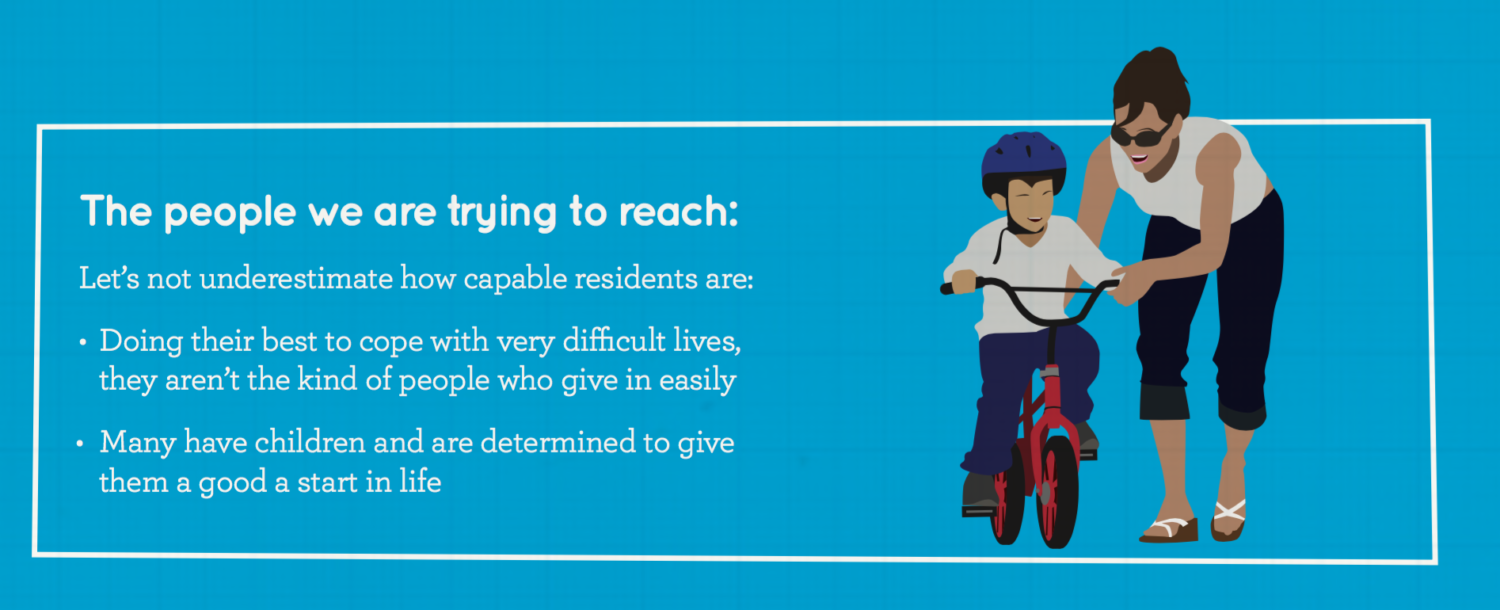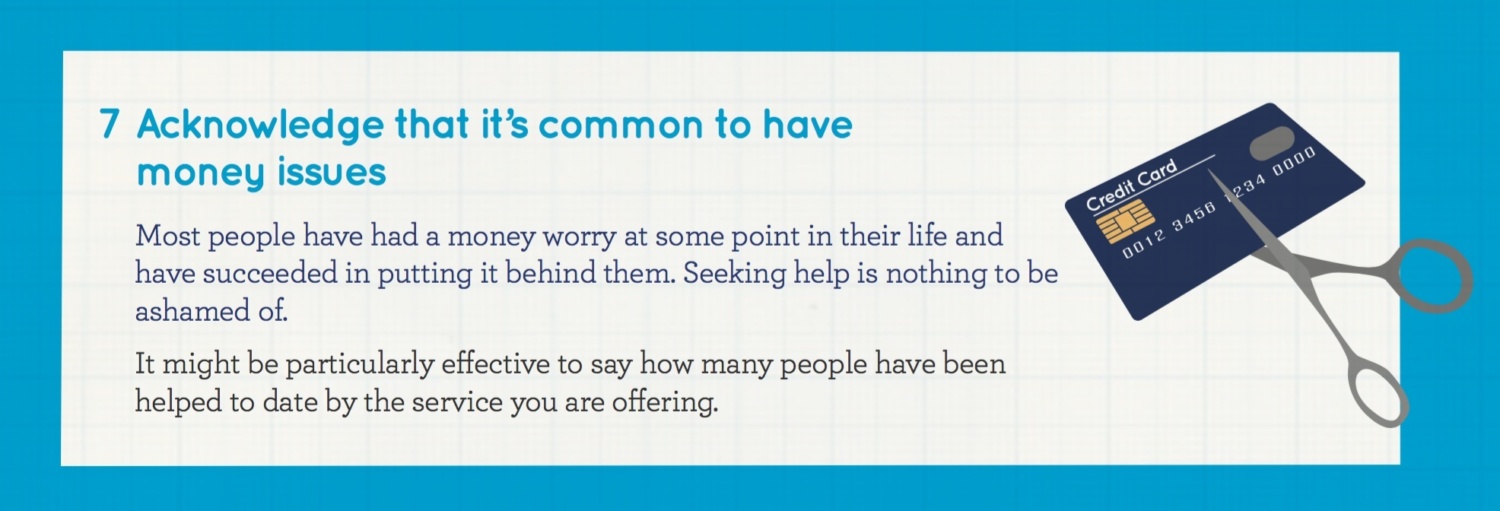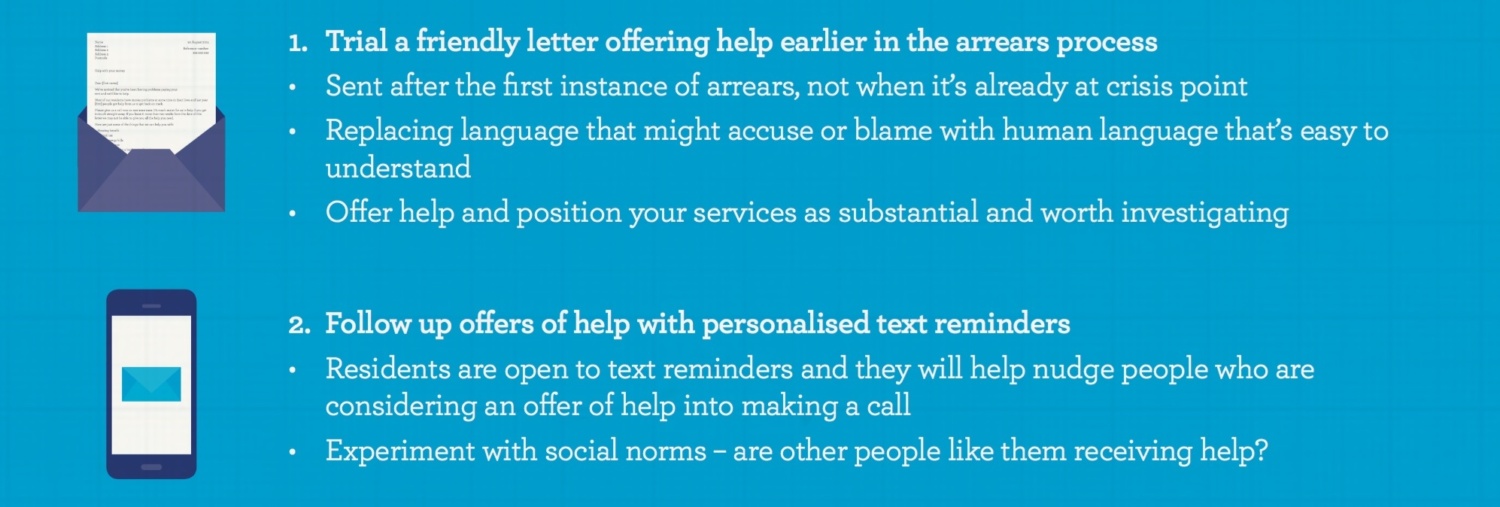Background
Housing Associations have a strong interest in helping residents with debt problems, not least because this makes them more likely to pay their rent. Working with a group of the main London Associations, we conducted in-depth qualitative research and applied behavioural thinking to this challenge to develop a new toolkit which is already being widely used by advisers.
Insight
Qualitative research with residents and interviews with frontline staff showed that getting into arrears often happened as the result of a change in someone’s circumstances (such as a child being born, a job beginning or ending or a partner leaving). When this happens, a lack of good support networks, confidence with authority or aptitude for research means they can be easily overwhelmed.
At this time, they’re looking for a straightforward, human relationship with their housing association, but often bad experiences with previous contacts over things like repairs and a perception that the arrears process can be extreme and unfair means that they are often wary of engaging with their association’s money advice service.

Intervention
We developed 12 principles for engagement, building on behavioural theory designed to overcome the barriers we’d seen and enable residents to take the first steps towards receiving the support they needed.
The principles include:
- Communicate services clearly and simply – Explain the help you can give in simple, practical terms. Be specific about what’s in it for them.
- Allow time for people to tell their story – Talking about what has happened is a crucial first step in getting back on the right track. If we empathise with someone’s problems, they are far more likely to work with us towards a solution.
- Help people experience success, however small at first – Doing something for yourself, and seeing that it works, is how real empowerment starts.

Implementation
In addition to the principles, we developed practical ideas for our partners to use, including new wording for letters, personalised text reminders and help as part of the moving in process.
Thanks to funding from the Money Advice Trust, the project has continued in the form of a two-year trial building directly on this work, tracking the impact of offering personalised support based on the 12 principles to 300 tenants when they move in to their properties.

Impact
Our latest work is subject to the ‘gold standard’ evaluation of a Randomised Control Trial so in due course we will have detailed evidence of its impact.
Already, we know that 81% of residents are taking up the support offered, significantly higher than the 61% usually achieved by Financial Inclusion teams.